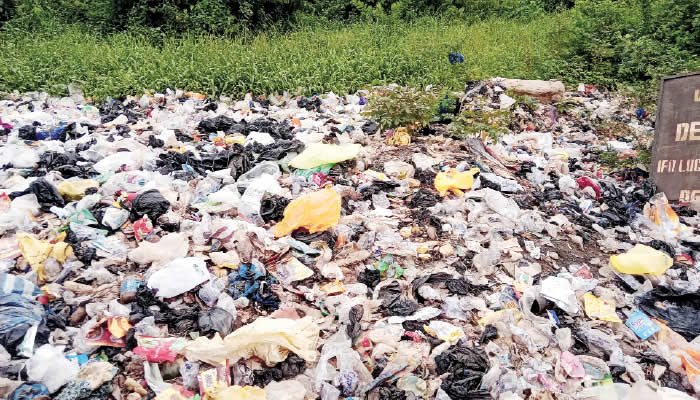The Sustainable Research and Action for Environmental Development (SRADev Nigeria) has partnered Oko Oba GRA Scheme 1 Housing Estate, Agege, Lagos, to unveil a ‘Zero Waste Project.’
The event is part of a broader project by SRADev titled:” Advancing Capacity and Strengthening National Advocacy towards Implementing A Zero Waste Initiative in Plastic Waste Management in Nigeria.”
The unveiling is also part of activities lined up for the celebration of the International Day of Zero Waste.
This year’s theme: “Towards Zero Waste in Fashion and Textiles,” focuses on the urgent need to take action to reduce the waste impact from the fashion and textile sector and promote sustainability and circularity.
Speaking at the event, the Executive Director, SRADev Nigeria, Dr Leslie Adogame said Zero Waste Day reinforces global commitment to fostering a cleaner and healthier environment.
According to him, SRADev Nigeria is implementing the above project to promote circularity in the waste management landscape.
Adogame said the project began with an inception, zero waste academy setup in schools and pilot demonstration of zero waste within the Oko Oba GRA Scheme 1 Housing Estate.
“This zero waste launch will demonstrate the possibility of waste segregation at source, material recovery, the inclusion of waste pickers in state waste management scheme.
“It will also build stakeholder-capacity towards the implementation of a zero waste strategy,” Adogame said.
The executive director noted that some of the second hand clothes imported into Nigeria were made of plastics as against textile materials that are biodegradable.
He explained that since they are used clothes, at the end of their shelf lives, they would soon compound the plastic pollution challenge the country is currently facing.
Also speaking, the President Association of Scraps and Waste Pickers of Lagos, Mr Friday Oku described waste management as a growing challenge in Lagos State.
Oku urged Lagos residents to imbibe the habit of sorting their wastes from source.
He noted that source segregation, the practice of separating waste materials at the point of generation, was a crucial step towards achieving zero waste.
According to him, source segregation enable efficient recycling, composting, and reuse, ultimately reducing waste destined for landfills.
He added that source segregation presents a practical solution for reducing waste, increasing recycling rates and promoting sustainability.
In his Keynote address, the General Manager, Lagos State Environmental Protection Agency, Mr Babatunde Ajayi, said the Zero Waste Project represents a bold step towards a future where plastic waste is minimised, reused, and recycled.
“We are delighted to together with like minds to explore innovative solutions to achieve zero waste in plastic management using circular approach.
“As this project is launched today, we acknowledge the critical role of each key players in plastic management.
“Thereby recognising the efforts of community groups, non-governmental organisations, private sector operators, and government agencies working tirelessly to address plastic waste management,” Ajayi said.
He noted that Lagos State was taking proactive steps to address plastic waste management.
“We are committed to reducing plastic waste pollution, through implementation and enforcement of state policies and regulations.
“We ensure the establishment of the state Extended Producers Responsibility for plastic utility in order to ensure sustainability in plastic waste management.
He said part of the government’s commitment to reduce plastic waste in the environment was the ban on single use plastic within the state.
The Chairman, Oko Oba Scheme 1 GRA Housing Estate, Mr Richard Olawole expressed gratitude to SRADev Nigeria for siting the project at the estate.
He also thanked the Lagos State Government for the good work it is doing in the state.
He charged the development partners to do the needful in the implementation of the project.
Other goodwill messages were sent by the Lagos Waste Management Agency and some associations in the waste value chain.
NAN


